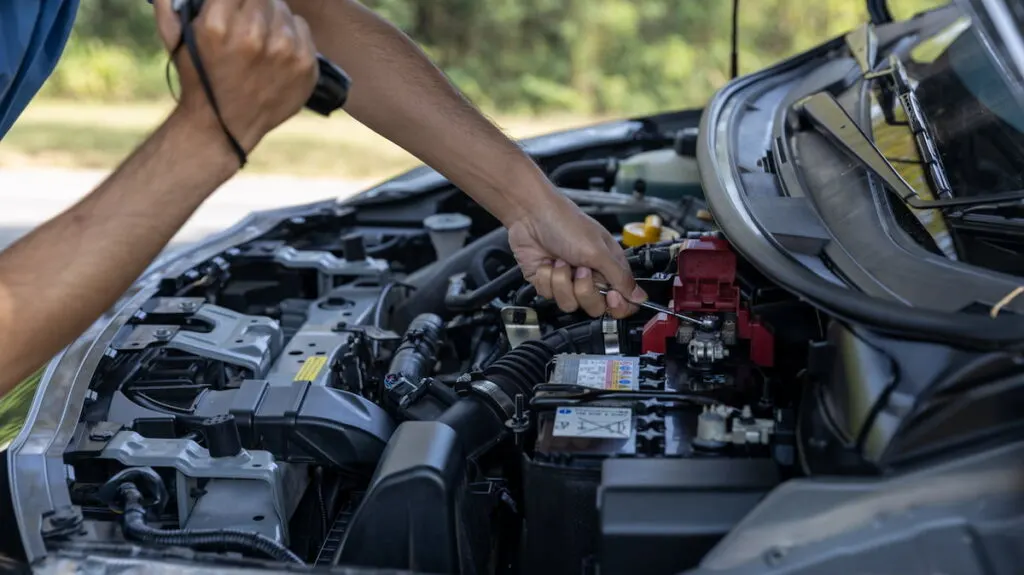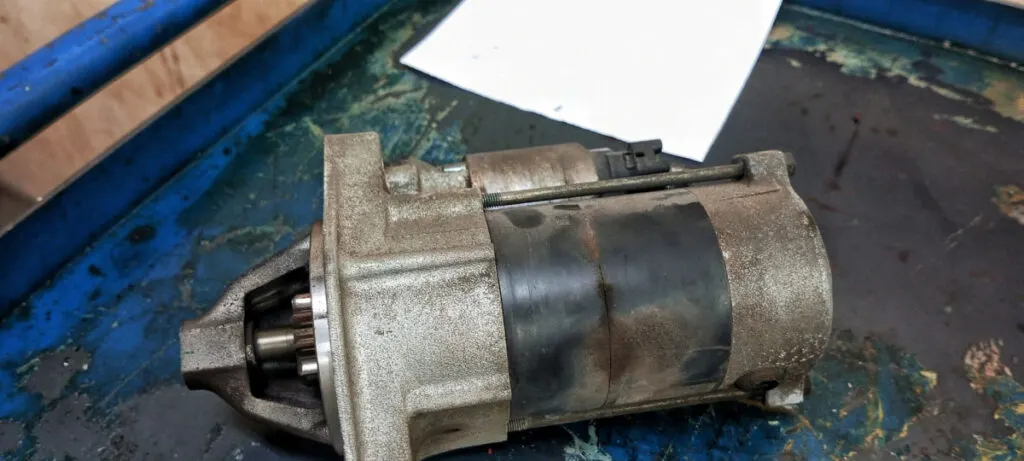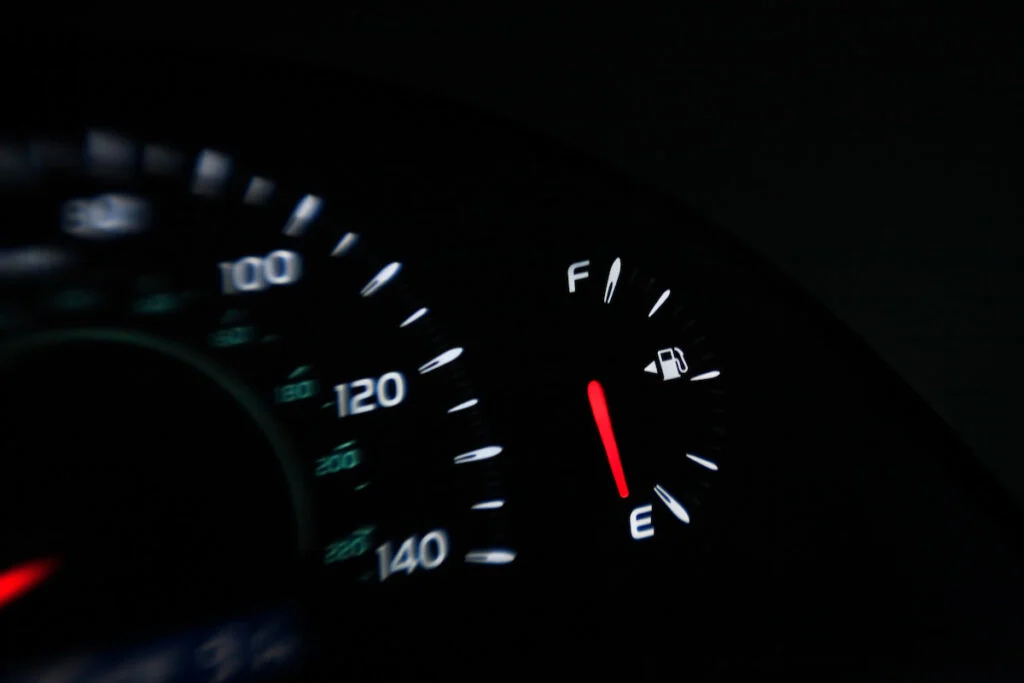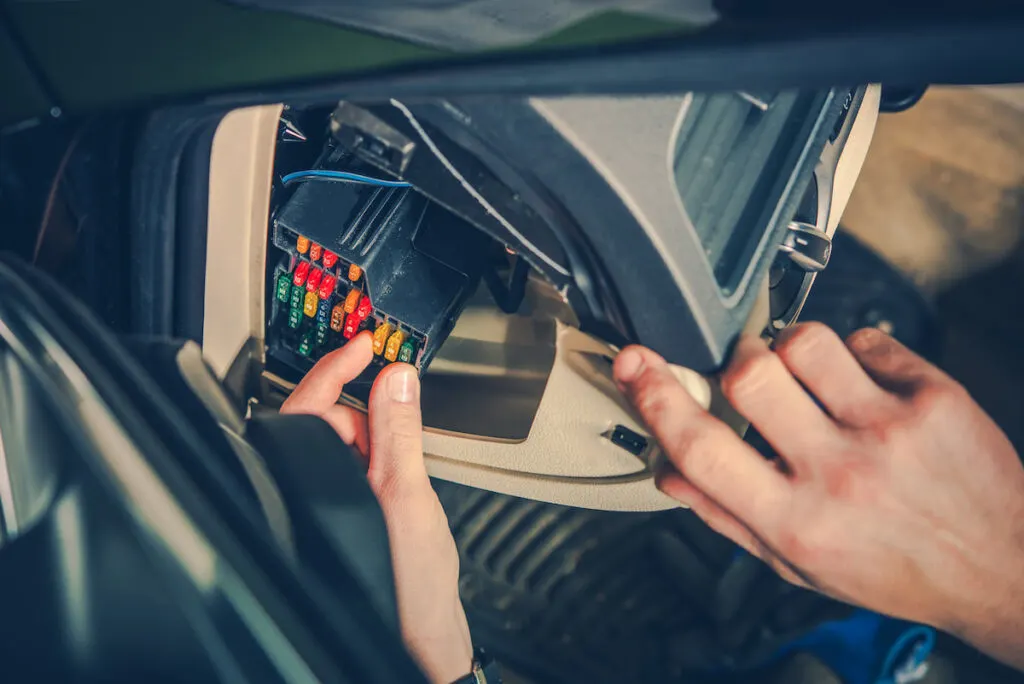*This post may have affiliate links, which means I may receive commissions if you choose to purchase through links I provide (at no extra cost to you). As an Amazon Associate, I earn from qualifying purchases. Please read my disclaimer for additional details.
Most times, when our vehicle refuses to start, the culprit is usually a dead or dying battery. However, this is not always the case. Sometimes your car won’t start even when your battery is in good condition.
A good battery does not always mean everything else will work. Your car consists of several systems that can prevent your car from starting.
Below, we review 11 reasons your car won’t start when the battery is good.
Table of Contents
Bad Battery Connection

Although it rarely happens, a bad battery connection can prevent your car from starting. If your vehicle doesn’t start, it could mean you have loose or bad cable connections on your battery.
Turning the battery terminals can help you confirm the status of the connection. If they move, it means they are loose, and you will need to tighten them.
If the terminals are dirty or show corrosion, you need to clean or replace them before reattaching the cables. You can either hire a professional or do it yourself. If you decide to do it yourself, ensure you know what you are doing and be careful.
Bad Ignition Switch
The ignition switch is not where you insert your car key. It is a component within the starting system your key comes in contact with to start your vehicle.
The job of the ignition switch is to carry power from the battery to other components of the car. But when it has no power, your vehicle will not start.
The ignition switch is like most car components and will go bad at some point. However, it doesn’t happen too often.
When the ignition switch no longer functions, your vehicle will give you a heads up. When your ignition switch goes bad, you may notice the following:
- Your car will refuse to start.
- When you insert the key in its housing, it won’t turn.
- Your vehicle will begin to stall.
- Noises coming from the starter motor to indicate it is working will cease.
- Your car’s dashboard flickers.
Once you determine your ignition switch is preventing your car from starting, take it to a professional. Ensure you get the problem resolved immediately to avoid complications and unnecessary expenses.
Broken Starter

Another common reason your car won’t start despite having a good battery is a bad starter. The starter transfers electric current from the battery to the starter solenoid to get the engine to fire.
When you have a bad starter, you will notice one of these signs:
- Your car engine will refuse to start, or it may begin to crank slowly.
- You might hear a grinding or whining noise whenever you start the engine.
- Your car engine may start stalling intermittently.
If you notice any of the above signs, you will need to replace the damaged component immediately. If you don’t, your vehicle will not start, and you will keep hearing clicking noises.
Bad Timing Belt
The timing belt is a rubber strip that opens and closes the engine valves at the proper interval. It ensures the pistons and the engine valves never touch each other. But once it fails to perform this function, the engine won’t work.
The timing belt is an essential maintenance component in your engine. A bad timing belt can result in severe engine damage.
Such damages may require an engine replacement. Thankfully, many car manufacturers specify when to change your timing belt to avoid this.
Empty Gas Tank

Sometimes the reason why your car won’t start is the most obvious one. Before even checking if they still have gas, most people begin to panic when their cars refuse to start. So, they go through various fixes before they finally realize it was an empty gas tank all along.
If your gas tank is empty, your car engine will not start. So, one of the first things to do is when your car refuses to come to life is to check if you still have gas in your tank.
Sometimes the fuel gauge might be faulty and give you the wrong reading. If this is the case, you may need to put some fuel in your car before starting it.
No Spark
Your car needs the ignition system to start. The ignition system, in turn, requires an initial electric current, fuel, and a spark to ignite. In the absence of a spark, there will be no ignition. Consequently, the car will not start.
The spark in the ignition system comes from the spark plugs. So, if your spark plugs are bad, your car will not start.
There are several signs of a bad spark plug. However, they can be hard to detect. Nonetheless, some of them include acceleration issues, engine misfires, and your vehicle refusing to start.
Some of the signs mentioned are usually related to issues of other car components. So, you may need a mechanic to verify if a bad spark plug is why your car is not starting.
Clogged Fuel Filter
Fuel filters ensure clean fuel is delivered to the fuel injectors from your tank. By doing, they keep dirt and other contaminants from getting into your engine.
Over time your fuel filter can become clogged partially or totally. When it does, it may keep your car from starting.
A partially clogged filter might not prevent you from starting your car. However, a fully clogged filter will prevent your vehicle from coming to life since the engine is not getting any fuel.
Clogged fuel filters are caused by too much mileage or low-quality fuel. If a clogged fuel filter prevents your car from starting, you will need to replace it.
Broken Distributor Rotor and Cap
The job of the distributor cap is to channel electricity from the ignition coil to the spark plugs. When the rotor stops functioning or the cap is not tight, your car may refuse to start.
Also, if moisture gets trapped underneath the cap, your car may be affected significantly. So, before reinstalling it, wipe with a dry cloth.
Always ensure you replace damaged caps.
Locked Steering Wheel
Another reason your car won’t start despite having a good battery is a locked steering wheel. When your steering wheel gets stuck in the lock position, your car may not start.
In this situation, moving the wheel from side to side while turning the key should fix the issue. If this doesn’t work, try using a duplicate key. Your current key may be worn and can no longer access the lock tumblers.
Fuses and Fusible Links

If your battery is good and your car won’t start, you may need to check the fuses and fusible links. Locate your car’s fuse box using the owner’s manual. If you don’t have one, check the internet or ask your local mechanic for assistance.
Once you find the fuse box look for signs of burnt wires and loose connections. Either of them can keep your car from starting.
Dead Key Fob Battery
If your car uses a push-button system and refuses to start when you press start, your key fob could be the culprit.
The start button waits for a signal from the key fob before starting the car. If there is no signal, the key fob’s battery is dead.
You may try to replace the key fob’s battery. But if you can’t, you may use the key hidden in the fob by the manufacturer to start the car.
Resources:
- https://www.lesschwab.com/article/starting-problems-how-to-tell-if-its-the-battery-or-alternator.html
- https://www.hhmobil.com/blog/top-6-reasons-why-your-car-doesn-t-start
- https://www.fiix.io/car-advice/articles/5-reasons-why-your-car-won%27t-start
- https://www.cashcarsbuyer.com/car-wont-start-but-battery-is-good-2/
- https://www.mentalfloss.com/article/639812/common-reasons-your-car-will-not-start
- https://www.erieinsurance.com/blog/7-reasons-car-wont-start
- https://www.hotcars.com/reasons-car-broken-down-wont-start-tips/
